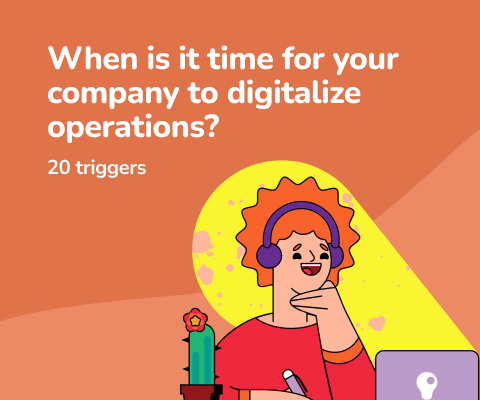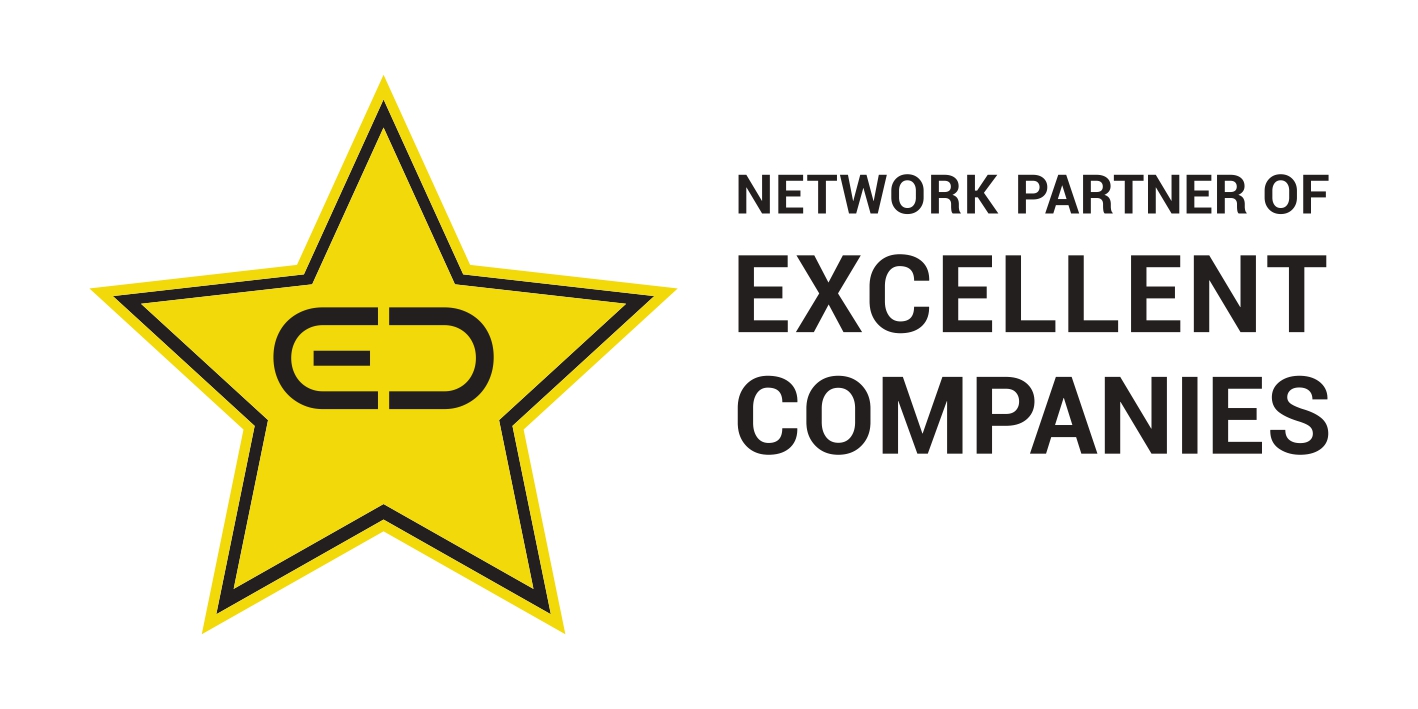February 11th, 2026, posted in for_founders
by Miruna
Staying up-to-date in software development isn’t just a nice-to-have—it’s crucial for your company’s success. As a leader, you know how fast the tech world changes. Keeping your team equipped with the latest tools, frameworks, and best practices ensures you stay ahead of the competition.
So, how do you pull this off? By creating a culture of continuous learning and adaptability, you can not only keep pace with industry advancements but also lead the way. Here are some strategies and tips to help you and your team stay sharp and relevant in the ever-evolving world of software development.
Follow industry news and blogs
Subscribe to newsletters
Subscribing to industry newsletters is a great way to receive regular updates about the latest trends and developments. These newsletters curate the most important news, tutorials, and insights, saving you time while keeping you informed.
Hacker News Digest summarizes top stories from Hacker News, a popular social news website focusing on computer science and entrepreneurship. By subscribing, you can keep up with discussions on the latest industry news, cutting-edge research, and startup trends.
Aimed at JavaScript developers, JavaScript Weekly provides weekly updates on JavaScript libraries, frameworks, and tools. For example, when React.js introduced hooks, JavaScript Weekly was one of the first to provide in-depth articles and tutorials, helping developers quickly adapt to the new feature.
The Morning Brew is a daily newsletter focused on .NET, which offers a blend of news, tutorials, and community highlights. During the release of .NET 5, The Morning Brew provided a series of detailed posts and guides to help developers transition smoothly from previous versions.
Read developer blogs
Many experienced developers share their insights and experiences through personal blogs. These blogs are treasure troves of knowledge, often providing detailed explanations, tutorials, and case studies that you won't find in official documentation.
Martin Fowler, a renowned software developer and author, covers topics related to software architecture and design. His blog offers deep dives into patterns like microservices and refactoring practices. For instance, his detailed analysis of microservices can help you decide if this architecture is suitable for your next project.
Focused on web design and development, CSS-Tricks is a go-to resource for front-end developers. It provides practical tutorials and solutions for CSS, HTML, and JavaScript. When CSS Grid was introduced, CSS-Tricks offered comprehensive guides and examples that helped developers quickly master this powerful layout system.
Participate in online communities
Join forums and discussion boards
Engaging in forums and discussion boards allows you to learn from others, ask questions, and share your knowledge. These platforms are invaluable for troubleshooting, gaining insights, and keeping your finger on the pulse of the industry. Here are some popular options:
As one of the largest Q&A sites for programmers, Stack Overflow is a goldmine for developers. Whether you're dealing with a complex bug or exploring a new technology, chances are someone else has faced a similar issue. For example, if your team encounters a challenging problem with a specific JavaScript framework, a quick search on Stack Overflow can provide multiple solutions and workarounds shared by other developers.
Subreddits like r/programming and r/webdev are vibrant communities where developers discuss everything from coding challenges to the latest industry news. Engaging in discussions on Reddit can provide diverse perspectives and up-to-date information. For instance, during the rollout of a significant update to a popular library, these communities often host real-time discussions, offering immediate insights and shared experiences from developers worldwide.
Follow influencers on social media
Many industry leaders share valuable content on platforms like Twitter, LinkedIn, and GitHub. Following key influencers allows you to stay informed about the latest trends and discussions. Influencers often provide insights, announce new tools, and share their experiences, offering a wealth of knowledge at your fingertips.
On Twitter, developers and tech leaders frequently share bite-sized updates, opinions, and links to longer content. Following influencers like Kent C. Dodds, who shares insights on JavaScript and React, or Angie Jones, who focuses on automated testing, can keep you updated on best practices and emerging trends.
LinkedIn is excellent for more in-depth discussions and professional networking. Influencers like Scott Hanselman, a prominent developer advocate at Microsoft, regularly post about .NET updates, developer productivity, and industry trends. Engaging with their posts can lead to valuable discussions and connections.
GitHub isn't just a code repository; it's also a community where developers collaborate and share their projects. Following influential repositories and contributors can expose your team to cutting-edge technologies and innovative solutions. By following popular open-source projects like React or TensorFlow, your team can stay abreast of the latest updates and community-driven enhancements.
Attend conferences and meetups
Industry conferences
Attending industry conferences, whether in-person or virtually, is one of the most effective ways to stay ahead in the software development world. Conferences offer a wealth of opportunities to learn from leading experts, gain insights into emerging technologies, and network with like-minded professionals.
Conferences feature keynote speakers, panel discussions, and workshops led by industry leaders and innovators. These sessions provide deep dives into the latest trends, best practices, and future directions of software development. For example, attending sessions at Google I/O can give your team insights into the latest advancements in AI, machine learning, and cloud technologies.
These events are also great venues for networking. You can connect with peers, potential partners, and even future employees. Networking can lead to collaborations, business opportunities, and the exchange of ideas that can benefit your company.
Some of the most notable industry conferences are:
-
Google I/O: Focuses on software development and technology, offering sessions on everything from Android development to cloud computing.
-
Microsoft Build: Covers Microsoft technologies and platforms, providing insights into the latest tools and services for developers.
-
AWS re:Invent: An essential conference for those interested in cloud computing, offering a deep dive into Amazon Web Services’ latest offerings.
Local Meetups
Local meetups offer a more intimate and accessible way to stay updated and connected within the software development community. These gatherings are often less formal than large conferences and provide a comfortable setting for learning and networking.
Meetups help build a sense of community among local developers. Regularly attending meetups allows your team to form relationships with other professionals in the area, fostering a supportive network that can be beneficial for collaboration and knowledge sharing.
If you’re worried about the budget, local meetups are usually more affordable and accessible than large conferences. They can be a convenient way for your team to stay engaged with the community without the need for extensive travel or significant expenses.
Websites like Meetup.com and Eventbrite are great resources for finding relevant local events. Simply search for keywords related to your interests ( “Python development,” “Agile methodologies,” “DevOps”) to find upcoming meetups in your area.
Enroll in online courses and workshops
MOOC platforms
Massive Open Online Courses (MOOCs) offer a flexible and accessible way to learn new skills and stay up to date with the latest trends and technologies in software development. These platforms provide a wide range of courses, from introductory to advanced levels, often created by top universities and industry experts.
Coursera offers courses from prestigious universities like Stanford, MIT, and Yale, as well as leading companies like Google and IBM. Courses cover a vast array of topics, including programming languages, machine learning, and cloud computing. For example, the "Google IT Automation with Python" course on Coursera is ideal for teams looking to enhance their automation skills.
Coding bootcamps
Coding bootcamps are immersive, short-term training programs designed to equip participants with practical skills in specific areas of software development. These programs are intensive and hands-on, often simulating real-world project environments to provide participants with a comprehensive learning experience.
Read books and publications
Books and publications are invaluable resources for gaining in-depth knowledge and staying updated with the latest trends and best practices in software development. Unlike online articles and blogs, books often provide comprehensive coverage of topics, allowing readers to dive deep into the subject matter.
"Clean Code" by Robert C. Martin is a must-read for any software developer. It focuses on writing clean, maintainable, and efficient code. Martin provides practical advice and examples that illustrate how to improve code quality and readability. By incorporating these practices, your development team can produce code that is easier to understand, debug, and extend, ultimately leading to more reliable and efficient software.
Industry Publications and Journals
In addition to books, subscribing to industry publications and journals can keep your team informed about the latest research, trends, and best practices.
ACM Queue is a magazine published by the Association for Computing Machinery. It covers cutting-edge research and trends in software development and computer science.
IEEE Software publication provides insights into software engineering practices and the latest developments in the field. Articles often cover topics such as agile methodologies, software architecture, and quality assurance.
Practice and experiment
Practical application is where real learning happens. Practicing and experimenting with new technologies, tools, and methodologies is essential for staying current and honing your skills.
Build personal projects
One of the most effective ways to learn and grow as a developer is by building personal projects. These allow you to explore new technologies, experiment with different approaches, and apply what you’ve learned in a real-world context. Here’s how you can benefit from building personal projects:
Personal projects provide a hands-on way to understand and apply new concepts. For instance, if you’re learning a new programming language, building a small application can help solidify your understanding.
These projects serve as a portfolio that you can show to potential employers or clients. They demonstrate your ability to take initiative, solve problems, and deliver functional software.
Contribute to open source
Contributing to open-source projects is another excellent way to practice and improve your coding skills. They are collaborative efforts where developers from around the world work together to create and maintain software. Here’s how contributing to open source can benefit you:
Working on open-source projects gives you exposure to real-world codebases, workflows, and best practices. It’s a great way to learn how large-scale projects are structured and maintained.
These contributions allow you to connect with other developers, receive feedback, and collaborate on meaningful projects. It’s an opportunity to be part of a global community of like-minded individuals and to improve your coding skills.
Want to keep up with the latest advances in software development? Then prepare to embrace the fact that it's more than just a job; it's an ongoing dedication to development and innovation. As the world of technology is constantly changing, staying ahead of the curve means taking a proactive, multidimensional approach to engagement and learning.
The most important part is to keep an open mind, stay involved, and—above all—remain proactive in your pursuit of knowledge. Those who commit to lifelong learning will be at the forefront of the exciting field of software development in the future.
Looking to form a great software team for your own project? Contact us and let’s see what we can do together.

















